Credits
Feature by: Cullen Gallagher, Victoria Large, Evan Kindley, Sam Bett, Brynn White, Anna Bak-Kvapil, Jonathan Foltz, Glenn Heath Jr., Michael Nordine, and Lindsay Peters
Posted on: 21 February 2011
Over half a century after they parted ways, Charles Brackett and Billy Wilder’s combined output stands as one of the most inspired and fruitful screenwriting collaborations in Hollywood history. Life magazine dubbed them “The Happiest Couple in Hollywood.” In George Cukor’s estimation, they were “the brightest things at Paramount.” Ginger Rogers simply said that they “were the best writers in the picture business.” And Ray Milland summed them up as “a most improbable pair,” before adding: “Thank God for Wilder and Brackett, Wilder with his prying, probing, intuitive touch of genius, and Brackett with his kindly calm and sociological insight.”
Between 1938 and 1950, Brackett and Wilder co-scripted fourteen movies together; helped elevate the role of the screenwriter in the eyes of both the public and the industry; and, in the process, gave the world some of the most admired and best loved films of their day. Bluebeard’s Eighth Wife. Midnight. Ninotchka. Ball of Fire. The Lost Weekend. Sunset Boulevard. On the strength of these remarkable efforts, Brackett and Wilder became known for their wildly inventive plots and crackerjack dialogue, and stories which could be intoxicatingly romantic or bitterly cynical.
Brackett was a Big Apple sophisticate, a graduate of Harvard Law School, published novelist and former critic for The New Yorker who came East at the beck and call of the talkies in the early 1930s. Wilder was an Austrian émigré, a former Berlin crime reporter who cut his teeth on the groundbreaking independent feature People on Sunday from 1930 (which also spawned the careers of brothers Robert and Curt Siodmak, Eugen Schüfftan, Edgar G. Ulmer, and Fred Zinnemann). Gloria Swanson described Wilder as “elfish, witty, confident, and a bit overactive” and Brackett as “quieter, more refined.”
Both writers found themselves under contract at Paramount in the mid-1930s, neither amounting to much on their own. Both were struggling: Brackett to get quality assignments, and Wilder to master the English language. How did two total strangers wind up on the same byline? Numerous biographers suggest that it was Paramount producer Manny Wolfe who suggested – or ordered – the writers to collaborate on an upcoming picture for Ernst Lubitsch to be called Bluebeard’s Eighth Wife. Whether it was fate, coincidence, or convenience that threw these two disparate individuals together we can only speculate; but regardless of the reason, the effects were immediate. From the film’s opening “meet cute” with Gary Cooper and Claudette meeting in a store between he only wants the bottoms to the pajamas and she only the top – surely one of the most iconic moments in screen comedy – everyone was thrilled with their results. Audiences loved Bluebeard upon its release in 1938, and the industry was soon abuzz about the new writing team.
Their writing method was as idiosyncratic and charming as any of the relationships in their movies. A series of photographs in Life, which accompanied the article “The Happiest Couple in Hollywood,” captured the twosome at work looking, ironically, very leisurely. Their poses were typical: Brackett, shoeless, sitting on a couch, his legs tucked coyly beneath him; Wilder, pacing the room like a caged lion. As Lincoln Barnett’s article revealed, they even referred to their big office as “The Bedroom,” and their small office as “The Game Room.” Somehow, between naptime and games of cribbage, the writing got done (with the help of their loyal secretary, Helen Hernandez). Regardless of whether it was a carefree comedy like The Major and the Minor or a somber drama like The Lost Weekend, their scripts were immaculately conceived: meticulous organization, fresh scenarios, keen dialogue, and never a word out of place.

In Charlotte Chandler’s Nobody’s Perfect, Wilder explains the nature of his and Brackett’s collaboration:
If two guys get together who think the same way, the same politics, come from the same place and have the same background, well, it’s a terrible thing. It’s like pulling on one end of a rope. If you are going to collaborate with yourself, you don’t have a collaborator. You might as well write alone. You need an opponent to bounce things off of. You need to have that rope stretched as tautly as you can get it. Out of the friction comes the spark and the sparkle….
Brackett and Wilder pushed the boundaries of the genres they worked in just as much as they pushed the buttons of their producers and directors, a perfectionist drive that eventually led the writing duo to take control of their own scripts. After director Mitchell Leisen refused to make Charles Boyer speak to a cockroach during a scene in Hold Back the Dawn, the writers punished the actor by diminishing his role, and then decided to follow in the footsteps of writer Preston Struges by producing and directing their own screenplays. Brackett would become the producer, and Wilder the director. After Hold Back the Dawn, the two only relinquished control of their material once more, to Howard Hawks for Ball of Fire. There was one condition: Wilder had to be at Hawks’ side throughout filming. This production was to be Wilder’s stepping-stone on his way to becoming a director himself.
The rest, as they say, is history. A total of fourteen movies in almost as many years. From little girls playing grownup (That Certain Age) to grown women pretending to be young (The Major and the Minor), Russian spies in Paris (Ninotchka) to British spies in Egypt (Five Graves to Cairo), and turn-of-the-century Austria (The Emperor Waltz) to post-WWII Berlin (A Foreign Affair). From their “Bedroom,” Brackett and Wilder crisscrossed continents and genres, but wherever they went, they were sure to leave their mark, as distinctive as the fabled “Lubitsch touch” they so admired.
Brackett and Wilder rose to the top of the industry with Sunset Boulevard, a film that turned the cameras back on Hollywood for a change with its caustic story of a has-been silent movie queen who dreams of making her big comeback, a young writer struggling to make it in the biz, and an industry indifferent to the fate and dreams of either. It was the pinnacle of their joint achievement—their darkest work to date, filled with shattered dreams, brutal delusions of grandeur, and a biting realism that cut too close to reality for comfort (particularly with the casting of real-life “waxworks” from Hollywood’s silent age). At the 1951 Academy Awards, Sunset Boulevard won three Oscars – including one for Best Writing for Brackett, Wilder, and D.M. Marshman Jr. – and was nominated for eight others. And then the duo split for good, never to collaborate again.
Since their separation, it has come to light that “The Happiest Couple in Hollywood” was as much a fiction as any of the many masquerades that frequently appear in their scenarios. Though their polar opposite personalities blended so perfectly on the screen and on the page, in real life things were not always so harmonious. As Maurice Zolotow relates in his book Billy Wilder in Hollywood:
[Wilder] flew off the handle. He had a short fuse…. He was always saying terrible things about Charlie. He would keep on goading Charlie until Charlie, in his turn, finally exploded and started hurling imprecations at his partner, and after Charlie had used up his curses he would throw objects – heavy objects – telephone books and inkstands and wastebaskets. Charlie would try to hit Billy in the head; and he was serious. Behind closed doors, [secretary] Helen Hernandez would tremble, as she listened to them screaming and then the sounds of breaking ashtrays and falling lamps.
Wilder, in Charlotte Chandler’s biography Nobody’s Perfect, is far less sensational and more diplomatic. He explains, “The success of Sunset [Boulevard] may have been part of our problem. Where do you go from there? I had some ideas he didn’t like, and he had some I didn’t like…. The sparks just weren’t flying anymore.” This wasn’t the first time the writers had split – Brackett abandoned Wilder on Double Indemnity, supposedly because he didn’t care for the dark material, leading Wilder to enlist Raymond Chandler instead – but it would be the last. The duo went out on a high note. From the beginning, they wanted to turn Hollywood on its head, show them who’s boss, and ignite the screen with strong characters, blistering dialogue, and stories that wouldn’t soon be forgotten. And, with Sunset Boulevard, they did just that—and in spades.
Over the next two weeks, we’ll be re-examining the collective works of Charles Brackett and Billy Wilder. Coinciding with this feature will be a screening of Five Graves to Cairo, the second picture to feature Wilder as Director and Brackett as Producer, as part of our monthly series at 92YTribeca on Saturday, February 26th.
Introduction by Cullen Gallagher
By Cullen Gallagher, Victoria Large, Evan Kindley, Sam Bett, Brynn White, Anna Bak-Kvapil, Jonathan Foltz, Glenn Heath Jr., Michael Nordine, and Lindsay Peters ©2011 NotComing.com
Reviews
-
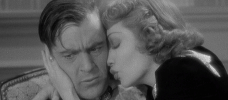
Bluebeard’s Eighth Wife
1938 -
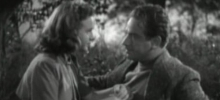
That Certain Age
1938 -

Midnight
1939 -
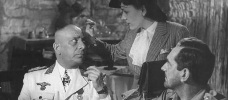
Five Graves to Cairo
1943 -
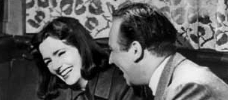
Ninotchka
1939 -
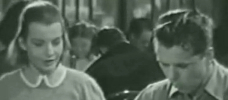
What a Life
1939 -
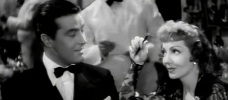
Arise My Love
1940 -
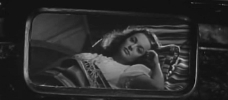
Hold Back the Dawn
1941 -
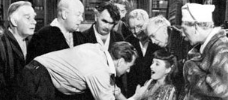
Ball of Fire
1941 -
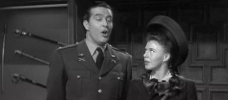
The Major and the Minor
1942 -
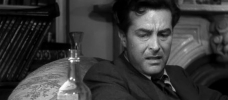
The Lost Weekend
1945 -
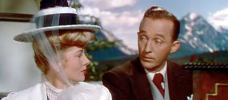
The Emperor Waltz
1948 -
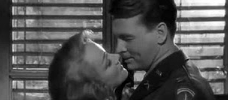
A Foreign Affair
1948 -
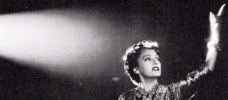
Sunset Boulevard
1950
We don’t do comments anymore, but you may contact us here or find us on Twitter or Facebook.



